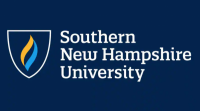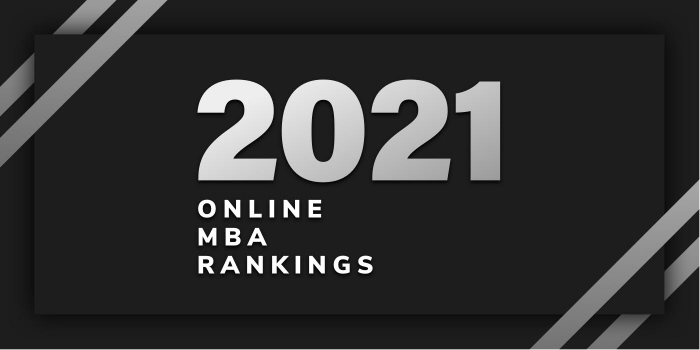
Our 2021 list of the Top 25 Online MBA Programs in the Midwest. We define the Midwest as Ohio, Michigan, Indiana, Illinois, Wisconsin, Minnesota, Iowa, Missouri, Kansas, Nebraska, South Dakota, North Dakota, Wyoming, Idaho, and Montana. For an explanation of our ranking criteria, click here.
| Ranking | School | State |
|---|---|---|
| 1 | Indiana University, Bloomington | Indiana |
| 2 | University of Michigan | Ann Arbor |
| 3 | University of Illinois at Urbana-Champaign | Illinois |
| 4 | University of Wisconsin MBA Consortium | Wisconsin |
| 5 | University of Nebraska-Lincoln | Nebraska |
| 6 | University of Kansas | Kansas |
| 7 | University of Cincinnati | Ohio |
| 8 | Ball State University | Indiana |
| 9 | Boise State University | Idaho |
| 10 | Ohio University | Ohio |
| 11 | Kansas State University | Kansas |
| 12 | University of Michigan-Dearborn | Michigan |
| 13 | Creighton University | Nebraska |
| 14 | University of South Dakota | South Dakota |
| 15 | University of Wisconsin, Whitewater | Wisconsin |
| 16 | University of Dayton | Ohio |
| 17 | Central Michigan University | Michigan |
| 18 | University of Wyoming | Wyoming |
| 19 | Kent State University | Ohio |
| 20 | Wright State University | Ohio |
| 21 | Marquette University | Wisconsin |
| 22 | Southern Illinois University Carbondale | Illinois |
| 23 | Drake University | Iowa |
| 24 | University of North Dakota | North Dakota |
| 25 | Minnesota State University | Minnesota |

Kelley School of Business (KSB) at Indiana University Bloomington (IU Bloomington) was established in 1920 as the School of Commerce and Finance. When it opened, the school had just 70 students. Today, KSB serves more than 12,000 students enrolled in more than 30 programs in Bloomington, Indianapolis, and online.
Kelley School of Business offers a flexible online MBA program that allows students to customize their experience by selecting 12 credit hours of electives to create a specialized area. Known as “Kelley Direct Online,” the program offers the opportunity to complete a dual MBA/MS degree with an online MS in Business Analytics, or Strategic Management. This may be accomplished with only 12 additional credit hours.
Other unique opportunities for students include AGILE—Accelerating Global Immersion Leadership Education, which allows students to gain international business experience while pursuing their online degree. Offered each quarter, the AGILE curriculum features travel to places such as Gaborone, Botswana; Sao Paolo, Brazil; Beijing, China; New Delhi, India; Yangon, Myanmar, Johannesburg, South Africa, and Havana/Vinales, Cuba.
The AACSB-accredited Kelley Direct Online MBA takes just two years to complete.

University of Michigan-Ann Arbor (UM Ann Arbor) was established in 1817 in Detroit, Michigan as one of the first public universities in the nation. Serving 48,090 students, UofM Ann Arbor is the largest of the three UM Ann Arbor Campuses (Ann Arbor, Dearborn, Flint). The school offers 250 degree programs in 19 schools and colleges. The Stephen M. Ross School of Business (Michigan Ross) offers a part-time MBA program that may be completed mostly online.
Program features include live, interactive classes + self-guided modules, hands-on, in-person residencies, and an individualized approach to career development & recruiting. Students will complete 27 core credits, 18 elective credits, nine credits over three residencies, and three Multidisciplinary Action Projects (MAP) course credits. Elective credits allow students to customize their studies according their specific interests and goals and the semester-long MAP course work allows students to work in a team to solve a problem for a real-world company or organization. The experience is designed to test the student’s business acumen.
Elective course highlights include Bargaining and Influence Skills, Communicating in a Virtual World, Competitive Tactics and Policy, Digital Marketing, Leading Diverse Teams, High Stakes Leadership: Building Resilience Through Relationship, The Science of Success: Who Succeeds, Who Doesn’t and Why and Venture Capital.
Other program highlights include the opportunity establish and run a functional team within a real company in the school’s immersive Living Business Leadership Experience (LBLE) course and Global Experiences that will take students to places such as China, Germany, Israel, and more.
Graduates of the Michigan Ross Online MBA Program move on to successful careers at companies in cities such as Boston, Chicago, NYC, San Francisco, Seattle and abroad. Many have gone on to secure positons in consulting (nearly 40% of graduates), with a base median salary of $160,000 and median signing bonus of $30,000.
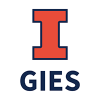
The University of Illinois Urbana-Champaign (UIUC) is one of the original 37 public land-grant institutions created after President Abraham Lincoln signed the Morrill Act in 1862. Founded in 1867 and serving more than 52,000 students, the school is the oldest and largest campus in the University of Illinois system. Eighteen colleges housed within UIUC provide more than 150 programs of study.
Officially formed in 1915, Gies College of Business serves more than 8,000 business students each year, with more than half enrolled in graduate programs, including Gies’ fully online MBA (iMBA). This career-curated program organizes material in a way that mirrors how students will “actually use it on the job,” says the school. “On top of that, it includes heavy development of leadership skills and vision, including special pathways and team projects on the forces shaping the future—digitalization, globalization, and innovation.”
The iMBA is divided into several specializations, groups of related courses. To finish the program, students must complete at least five specializations and a group of electives, or complete six specializations. The degree culminates with a program-wide experiential learning course. Specializations include Digital Marketing, Financial Management, Global Challenges in Business, Innovation: From Creativity to Entrepreneurship, Managerial Economics and Business Analysis, Strategic Leadership and Management, Value Chain Management, and Business Analytics.
Specializations ultimately come together as a capstone project and lead to the complete MBA. The capstone is self-directed and consists of a strategic leadership and management plan covering the design and management, effective people management, analysis of a business situation, and the formulation and implementation of a strategy.
Learning for the program takes place through the University of Illinois and Coursera. The part of the curriculum in the Coursera platform is on-demand, so students can complete it at their own pace. Other program highlights include hands-on faculty who are interactive in classes and projects, and weekly live class sessions, covering multiple time zones across the world. iMBA students live in more than 90 countries.
Highlights of this AACSB-accredited program include job placement and students’ ability to immediately apply what they learn. More than half of iMBA students earn a promotion, receive a job offer, or accept a new position during their time in the program. And students report receiving a 21% average pay increase before graduation.
Serving approximately 165,000 students at 13 universities across 26 campuses, the University of Wisconsin System (UW) is one of the largest systems of public higher education in the nation. Through its statewide extension and outreach programs, the system also serves more than one million citizens. Three campuses—UW-Eau Claire, UW-La Crosse, and UW Oshkosh—have joined forces to create the University of Wisconsin MBA Consortium.
This AACSB-accredited program is the only offering among UW’s peer consortial programs to grant the degree from the MBA Consortium Program rather than from one of the partner schools. The program curriculum “combines four credits of business essentials courses, 22 credits of core courses, and ten credits of electives to cover general business competencies,” says the school, “while enabling” students to design a customized learning experience based on their individual interests.
Through electives, students may focus in a specific area or two, without officially declaring an emphasis/concentration. Elective course highlights include Corporate Venturing, Incorporation of Exchange Rates in Strategic Decision-Making, Introduction to Enterprise Resource Planning, Managing Technology in Turbulent Times, Mutual Fund Investing, Regional Trade Agreements and Multinational Corporations, and Sustainability and Organizational Management.
Other course highlights for the MBA Consortium Program include Competing Strategically in a Global Environment, Developing New Products and Services, Leading a Diverse and Dynamic Workforce, and Navigating Change amid Uncertainty. Students will also complete a capstone (Refining Your Plan for Success) at the end of the program. Coursework for the program may be completed entirely online—no campus visits required.
Graduates of the Online MBA Program will be able to “demonstrate the knowledge and skills necessary to be effective leaders, who can lead a diverse and inclusive organization, identify and evaluate market opportunity, and use critical thinking and analytical reasoning to make informed business decisions.” Graduates will also be able to “create and maintain a dynamic vision for personal and professional development in a global and domestic context.”
The Online MBA at UW may be completed in 2.5 to three years.
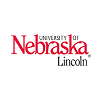
Chartered in 1869, University of Nebraska–Lincoln (UNL) is a member of the Big Ten Conference and the Big Ten Academic Alliance. Classified within the Carnegie “R1: Doctoral Universities – Highest Research Activity” category, UNL is also a land-grant university and a member of the Association of Public and Land-grant Universities (APLU).
Serving 25,390 students, UNL offers more than 250 majors, degree programs, and certificates. One of the school’s most popular programs is Business.
The College of Business offers a variety of flexible pathways to the coveted MBA. Options include the Traditional MBA and a 48 credit hour MBA delivered entirely online. Online courses for this program are offered in eight-week sessions. The College of Business also offers a Flex MBA program, which is a blend of both on-campus and online courses. However, the majority of courses for this program are taken on-campus at the “renowned” Howard L. Hawks Hall, which opened in 2017.
For the 100% online MBA program known as MBA@Nebraska, students “will never have to come to campus, which makes this option the most flexible” of the school’s three MBA programs, says the school. The program includes 10 core classes (30 hours), nine hours of breadth electives, and nine hours of electives. Specialization options include Business Analytics, Finance, International Business, Marketing, and Supply Chain Management. Online graduate certificates are also available in Business Analytics, Financial Communications, Human Resource Management, and Supply Chain Management.
In addition to the option to choose a specialization or certificate, MBA@Nebraska students are expected to participate in an internship. “Internships are designed to give students practical experience in managerial and/or administrative situations.” Students can participate in a maximum of two internships and earn three hours of elective credit for each internship, for a maximum of six hours.
Start times for the AACSB-accredited MBA@Nebraska program are January, March, June, August or October of each year. The average completion time for the program is three years, but it is possible to finish in 1.5 years. However, students are allowed up to 10 years to complete the program.
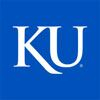
In 1866, University of Kansas (KU) welcomed its first class of 55 students to what the school calls “an unfinished building on a treeless ridge called Mount Oread.” Today, the school has five campuses — Lawrence, the Edwards Campus in Overland Park, and medical branches in Kansas City, Wichita, and Salina — serving nearly 28,000 students in dozens of schools and departments.
The School of Business at University of Kansas (KU School of Business) offers an AACSB-accredited MBA program that may be completed entirely online. There are no residency requirements for this 42 credit hour program and courses are eight weeks each. Three focus areas are available including Finance, Management & Leadership, and Marketing.
The Finance focus requires four courses including Advanced Topics in Finance, Corporate Finance, Financial Institutions and Markets, and Investments. Management & Leadership requires Developing Effective Management and Team Skills, Leadership Philosophy and Practice, Managing Internationally, and Strategic Organizational Design and Change Management. The Marketing focus requires Consumer Behavior, Digital and Social Media Marketing, Global Marketing, and Integrated Marketing Communications.
With three start dates per year (spring, summer and fall), the KU School of Business Online MBA may be completed in just over two years.

The University of Cincinnati (UC) traces its origins to 1819 when both Cincinnati College and the Medical College of Ohio were chartered. In 1870, the City of Cincinnati established the University of Cincinnati, which later absorbed the two predecessor institutions. One of the oldest and largest municipal universities in the country, UC serves nearly 47,000 enrolled in nearly 800 degree, certificate, and minor programs.
UC also houses one of the country’s top three co-op programs. CP students “earn a collective $75 million annually working for about 1,300 international employers via their co-op work placements,” says the school “alternating academic semesters with professional, paid work directly tied to their majors with employers like Apple, Boeing, Disney, Fisher Price, HBO, NASA, Nike, P&G, Toyota and hundreds more.”
UC programs are housed in 11 colleges, UC Blue Ash College, UC Clermont College, and the Graduate School. The Carl H. Lindner College of Business at the University of Cincinnati has been accredited by the AACSB since 1919. The school offers an online MBA program with two options—part time or accelerated. The part-time program can be completed within two years and the accelerated program can be completed in as few as 12 months.
Consisting of 38-48 credit hours, the MBA program helps students develop “strategic leadership and decision-making skills” as well as core skills in accounting, business analytics, economics, finance, information technology, leadership, marketing, and operations management. The Linder Online MBA Program also offers eight online certificate/concentrations including Corporate Taxation, Health Care Administration, Health Care Finance, Health Care Policy and Regulation, Health Care Operations, Individual Taxation, Investment Management, and Marketing. Each certificate/concentration requires 12 credit hours of study.
Other program highlights include research-intensive learning with real-world experiences, opportunities to study abroad, engagement with corporate partners, and career services that connect students and graduates to employers.

Established in 1918 as the Indiana State Normal School Eastern Division, Ball State University (BSU or Ball State) serves 22,000 students enrolled in more than 300 programs in nine colleges. With one of the lowest tuition rates in the Mid-American Conference, Ball State houses the Miller College of Business, which offers an online MBA program that may be completed in as few as two years.
The Miller Online MBA includes 24 credits of core courses and six to nine credits of MBA electives “covering in-depth knowledge of business analytics, entrepreneurship, finance, leadership, marketing, sales, and more,” says the school.
This AACSB-accredited program offers nine optional concentrations including Artificial Intelligence, Business Analytics, Construction Management, Entrepreneurship, Finance, Healthcare Administration, Health Economics Policy and Administration, Information Technology Leadership, Logistics and Supply Chain Management, and Sales Management. A General MBA that allows students to customize their experience through a variety of course subjects is also available, as well as Certificates in Health Economics and Professional Sales.
Miller Online MBA students will complete coursework for the program through a combination of asynchronous (no specific sign-on time each week) and synchronous (specific time to watch and participate in live webcast lectures and discussions) formats. Students will “keep in contact with instructors and classmates using e-mail, discussion boards, file sharing, chats, web page posting, and possibly over the telephone.”
Miller College of Business offers an additional delivery format option designed for students who prefer a combination of online and on-campus classes. The Hybrid MBA allows students to choose which classes they would like to take on-campus and which ones they prefer to complete online. Most students (in either program) enroll in an average of two courses each semester and typically complete the program in five to six semesters. Three start times are available including fall, spring, and summer.
There are no residency requirements for the fully Online Miller MBA.

Boise State University (Boise State) was founded in 1932 by the Episcopal Church. The school, which became an independent junior college in 1934, has been awarding baccalaureate and master degrees since 1965. Serving 19,825 degree-seeking students enrolled in 200 areas of study, Boise State University is Idaho’s largest university. Programs at this doctoral research institution are offered in seven academic colleges, the Honors College, and the Graduate College.
The College of Business and Economics at Boise State University (COBE Boise State) offers an MBA program that is the only MBA in the Treasure Valley with AACSB accreditation. Designed for mid-career professionals, the COBE Online MBA (OMBA) provides 49 credit hours of study in 13 courses offered in eight-week quarters. Launched in Fall 2019, the program now offers Construction Management, Healthcare Leadership, and Management Specializations.
Course highlights for the programs include Business Plan Development, Design Thinking and Strategic Management, Global Economics: Policy and Trade, Information Technology and Business Alignment, Managing Successful Projects, and People and Organizations.
Offered entirely online (campus visits are not required), the COBE MBA uses 100% digital content, “replacing traditional textbook cost and hassle,” says the school. Program tuition includes all course materials, which are accessible through any web-enabled device that supports HTML5. Students can complete the program in as few as 12 months, full-time.
Graduates of the COBE OMBA are prepared for advancement opportunities in their current careers or new positions such as Business Owner, Director, Executive, General Manager, Project Manager, Senior Manager, and many others.

Ohio University was established in 1804 as the state’s first university. Serving more than 33,000 students, the school offers 250 academic programs in 20+ colleges and schools.
The College of Business at Ohio University is a Top 15 Public Business School. It offers an AACSB-accredited MBA program that may be completed entirely online. There is no GMAT requirement for admission and students may choose from nine concentrations including Accounting, Business Analytics, Business Venturing & Entrepreneurship, Executive Management, Finance, Health Care, Operations and Supply Chain Management, Strategic Selling & Sales Leadership, and Project Management. Students may also complete an online graduate certificate that will allow them to “upskill in as few as three courses,” says the school. Students may choose more than one certificate and courses can be applied towards the MBA.
Course highlights for the MBA include Accounting for Executives, Advanced Corporate Finance, Applied Business Experience (CAPSIM), Data Analysis for Decision Making, Descriptive Analytics, Operations Management, and Strategic Use of Information Systems. In the CAPSIM course, “students will work in teams and apply course material to complete a simulated business experience.” In the simulation, each team runs a fictitious firm.
Students “will define a business problem to address, assess the organization and its context, suggest solutions, and deliver an action plan for implementing the solution. Teams compete with one another in a dynamic industry environment.” The CAPSIM course “provides an opportunity to apply many of the concepts learned throughout the program.”
The MBA program at Ohio University may be completed in just two years, full-time.
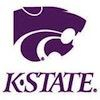
Kansas State University (K-State) was founded in 1863 as Kansas State Agricultural College—the nation's first operational land-grant university, and the only one in Kansas. The school serves nearly 21,000 students enrolled in more than 250 undergraduate majors and programs and 165+ graduate degrees and certificates in nine colleges and one school.
The College of Business Administration at Kansas State University (K-State CBA) offers a Professional MBA (PMBA) that may be completed online. The program has just one required two-day on-campus orientation that includes team building, networking, and professional development components. An optional faculty-led international trip is also part of the program as well as the Professional Development and Learning Seminar.
The Online PMBA is a “high-quality, interactive program” says the school, that allows students to “work at their own pace and integrate examples from their own professional experience within each class.” Courses for this AACSB-accredited program are taught by the same qualified professors who teach graduate courses on campus in Manhattan, Kansas. Students will take a total of 36 credit hours or as few as 30 depending on previous undergraduate coursework.
Course highlights include Business Strategy, Economic Analysis for Business, Information Technology Strategy and Application, Managing the Triple Bottom Line Business, and Operations and Supply Chain Management. Students will also complete a Business Capstone during the second eight weeks of the fall and spring terms and during the 8-week summer term. The Business Capstone allows students to apply what they’ve learned to a final project.

University of Michigan-Dearborn (UM Dearborn) was founded in 1959 with a gift of $6.5 million from the Ford Motor Company and just over 200 acres of land. Since registering its first class of 34 students, the school has set numerous enrollment records. Currently, the school serves 6,725 undergraduate, 1,954 graduate, and 104 doctoral students enrolled in more than 200 programs in four colleges.
The College of Business at UM Dearborn serves more than 1,250 undergraduate and 450 graduate students from 20 states and 12 countries. The school offers several MBA programs that may be completed either 100% online, on-campus, or a combination of the two. Programs include an MBA with a concentration, the MBA/MS in Finance, and the MBA/MSE-ISE (MBA/MS in Engineering, Industrial Systems Engineering).
Concentrations for the MBA are optional and include Accounting, Finance, or International Business. Students may also choose from a large number of online elective courses that match their interests.
Hybrid MBA students will have full access to campus-based resources and they will participate in face-to-face events, such as professional organizations and study-abroad opportunities.
The AACSB-accredited online UM Dearborn MBA requires 36 to 48 credit hours of study, and it may be completed within two to two-and-a-half years. Admission is rolling, so students may begin the program in September or January. May admission is also usually possible for part-time students.

Creighton University is one of 28 Jesuit colleges and universities in the United States. Founded in 1878, this private school serves 8,200 undergraduate, graduate and professional students enrolled in degrees and certificate programs in more than 160 areas. More than 40 graduate degree programs are also available and programs are offered in nine colleges and schools.
Heider College of Business offers an MBA program designed for the working professional. The program has three delivery options including online, on campus, or a combination of the two (hybrid). Highlights for this 33 credit hour program include several MBA concentrations, the option to add a graduate certificate or a dual degree in addition to the MBA. Concentrations include Accounting, Business Intelligence and Analytics, Financial Psychology & Behavioral Finance (also a certificate), Finance, Leadership, and Personal Financial Planning (also a certificate).
Other certificate options include Business Analytics, Healthcare Management, Negotiation & Conflict Resolution, Organizational Leadership, and Project Management. Students can combine numerous degrees with the MBA. Just a few include MBA + Law, MBA + PharmD, MBA + MS in Investment Management & Financial Analysis.
Graduates of the AACSB-accredited Heider Online MBA Program have gone on to pursue careers at numerous Fortune 500 companies such as ConAgra Foods, Mutual of Omaha, TD Ameritrade, Union Pacific, and others. Job titles of recent graduates include CEO, Finance Manager, Marketing Manager, Operations Manager, President, Project Manager, and Vice President.
The Heider Online MBA Program can be completed in just over two years.
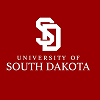
Established in 1862, University of South Dakota state’s oldest university. The school serves close to 9,500 students enrolled in more than 200 undergraduate programs and nearly 80 graduate programs in 10 colleges and schools.
Established in 1927 and AACSB-accredited since 1949, the University of South Dakota Beacom School of Business (USD Beacom) offers an MBA Program that can be completed mostly online. This program has Business Analytics, Health Services Administration, Finance, Marketing, and Operations and Supply Chain Management specializations for students seeking a focused degree. A General Management MBA is also available.
Course highlights for the USD Beacom Online MBA include Business and Its Environment, Leadership Development, Managerial Marketing, Production Operations Management, Quantitative Analysis, and Strategic Management. The school says, “Leadership Development is offered primarily online with a rich, five-day, face-to-face experience. Content for this course will be delivered online initially with the residency component taking place in either July or April (depending on the semester). Students enjoy this signature experience, and use the opportunity to network and form a deeper connection with faculty and colleagues.”
The USD Beacom Online MBA takes as few as 12 months to complete, full-time (including summer semester), or two to four years to complete, part-time. However, students are allowed up to seven years to complete the program.

Founded in 1868 as Whitewater Normal School, University of Wisconsin Whitewater (UW-Whitewater or UWW) is the second-oldest teachers college in Wisconsin. The school serves 11,995 students at the Whitewater and Rock County campuses enrolled in more than 200 undergraduate and graduate degrees, minors, and certificates. Programs are managed in six colleges and schools, including the College of Business and Economics, which offers an MBA Program that may be completed entirely online.
Known as the “UW-Whitewater MBA,” this AACSB-accredited program highlights cases and projects that give students the opportunity to practice using critical thinking skills, the development of project management skills, and projects that help students improve their ability to work in teams and lead.
Other program highlights include advanced graduate courses in functional areas such as Economics, Management, Marketing and Technology, 13 unique emphases, and more than 50 electives, “covering the breadth of contemporary business issues,” says the school. The programs wide range of electives allows students to tailor the UW-Whitewater MBA program to meet their interests and needs.
Emphasis areas include Accounting, Customized (by choosing courses across emphases), Cybersecurity Management, Data Analytics, Environmental Health and Safety, Finance, Human Resources Management, Information Technology Management, International Business, Management, Marketing, Project Management, and Supply Chain Management.
The UW-Whitewater MBA requires completion of 36 credit hours including Breadth (24 credits) Emphasis (nine credits) and Elective (three credits). If a student has met prerequisite requirements, they may be required to complete 0-14 credits of Common Body of Knowledge (CBK) courses. The number of courses required will be determined based on transcript review. Candidates with an undergraduate degree in business may not need to complete CBKs, or requirements may be very limited.
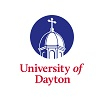
University of Dayton (UD) was founded in 1850 by the Society of Mary (Marianists) as St. Mary's School for Boys. The school opened in a frame building with just 14 students. Known at various times as St. Mary's School, St. Mary's Institute, and St. Mary's College, the school assumed its present identity in 1920. Today, the University of Dayton sits on nearly 400 acres and the school is recognized as a top-tier national research university rooted in the Catholic tradition.
Serving nearly 11,700 undergraduate, graduate, and law students and more than 120,000 living alumni worldwide, UD houses five colleges and schools including the College of Arts and Sciences, and the Schools of Business Administration, Education and Health Sciences, Engineering, and Law.
The School of Business Administration offers an MBA program known as the MBA@Dayton. This AACSB-accredited program offers concentrations in Business Analytics and Marketing. Students choosing either option will complete three elective courses instead of two (for a total of nine credits). This will add three credits to the course of study.
Several pathways are available including Accelerated, One-Year and Foundational. The One-Year MBA path allows students to advance their careers sooner, for less of a financial investment, by completing the program in a shorter amount of time. Students will take 13-14 courses (30-31.5 credits), along with two immersions in just 12 months. Immersions are collaborative learning experiences that provide opportunities to learn from influential business leaders, engage in group workshops, and network with peers.
The Accelerated MBA is designed for business professionals who have eight or more years of full-time work experience. Students complete fewer foundation courses, allowing them to advance their careers faster and for less of a financial investment. The program consists of 14-19 courses (31.5-39 credits) and two immersions and it may be completed in 15-18 months.
The Foundational MBA is designed for professionals who need to build a comprehensive foundation in the fundamentals of business. Students will take 18-22 courses (36-45 credits) and two immersions in 18-24 months.
Graduates of all programs will have the skills needed to advance into any leadership role in their current industry, transition into a different industry, or move from a small business or nonprofit organization to a more corporate environment.
As part of the UD School of Business, the MBA@Dayton is AACSB accredited.
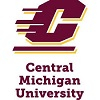
Central Michigan University (CMU) opened its doors on September 13, 1892, as the Central Michigan Normal School and Business Institute, with classes in Business, Stenography, and Teaching. Today, the school serves just over 19,400 students enrolled in approximately 300 programs at the undergraduate, masters, specialist, and doctoral levels in seven colleges.
The Central Michigan University Global Campus (CMU Global Campus) and College of Business Administration (CBA) offer an online MBA program that features several emphasis areas including and ERP Emphasis Using SAP Software, Human Resource Management, Logistics Management, Marketing, and Value-Driven Organization (VDO). SAP is the world's largest enterprise applications software company, with a wide range of software used by more than 38,000 firms in over 120 countries. The ERP Emphasis/SAP is a 40 credit hour program that requires a two-week face-to-face SAP Academy.
Depending on the emphasis area, students may have to take anywhere from 36 to 43 credit hours to complete the program. The Online MBA program at CMU Global Campus is AACSB accredited.
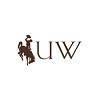
Founded in 1886, University of Wyoming (UW) is a land-grant research institution serving 14n000 students from 50 states and 90 countries. The school offers 80 undergraduate and more than 90 graduate academic programs in seven colleges and multiple interdisciplinary institutes and schools.
The College of Business at University of Wyoming offers an online MBA delivered through Online UW. This part-time program is “specifically designed for experienced business professionals interested in a fully AACSB-accredited, 100% online program that fits their busy schedules,” says the school. The program, which be completed in two years, is “intended for professionals that are interested in enhancing their understanding of business disciplines and applying them to decision-making in the workplace.”
This cohort-based, lock-step program consists of 30 credit hours of coursework and can be started in the fall, spring or summer term. Cohort-based means students will progress through the entire program with the same group of classmates. There are no campus requirements or live-streaming or proctored exams, and students have access to networking events both on and off campus.
Course highlights for the program include Business Research Methods, Decision Sciences for Managers, International Business Practice, New Ventures, Organizational Behavior & Human Resource Management, Strategic Management in Dynamic Environments, and The Global Business Environment.
Admission to the UW Online MBA Program is competitive, so “only top candidates will be considered.” Applications for admission are accepted on a rolling basis, until the cohort is filled or until the final deadline—whichever comes first. The program can be completed part-time or full-time in as few as three semesters.

Kent State University was founded in 1910 as a teacher-training school. Today, the school consists of an eight-campus system that serves more than 36,000 students enrolled in more than 340 undergraduate and graduate degree programs. Programs are offered in dozens of colleges, departments, and schools.
The College of Business Administration at Kent State University offers an online MBA that blends classroom instruction, experiential learning and optional education abroad experiences. Project-based courses for this 37 credit hour program are delivered in eight-week modules and two optional concentrations are available: Business Analytics and International Business. Of the 37 credit hours, 24 hours are core courses, nine are electives, and the Capstone is three credits. A one-credit Professional Development course is part of the program and an optional study abroad course can fulfill three out of the nine elective credits.
Course highlights for the AACSB-accredited Kent State Online MBA include Analytics for Decision Making, Business Strategy (Capstone), Global Technology Strategy, Global Conditions and Macroeconomics Policy, Law and Ethics, Leadership and Managerial Assessment, and Operations, Service and Supply Chain Management.
Other program benefits include access to a career coach, Career Services, and academic advisors, and the option to enroll year-round in the fall, spring and summer semesters.
Prior work experience or a business-related degree are not required for admission to the program and students can complete the Kent State Online MBA in as few as 12 months.

Wright State University opened in September 1964 with 3,203 registered students and 55 faculty members. Today, this public research university serves 12,000 students annually enrolled in 276 undergraduate, graduate, doctoral, and professional degree programs in six colleges and three schools. The Raj Soin College of Business offers an MBA that can be completed online, on campus or a combination of the two (hybrid).
The program offers 10 concentrations including Business Economics, Finance, Health Care Management, Interdisciplinary Business, International Business, Investments, Management, Innovation, and Change, Marketing, New Venture Creation, and Project Management. In addition to taking core courses such as Economics for Managers, Financial Analysis and Decision Making, International Business, Leadership and Ethics and Strategic Cost Management, students will take the Capstone Course Developing and Implementing Competitive Strategies, worth three credits.
Depending on the student’s academic background, the AACSB-accredited Wright Online MBA will require 33-46.5 credit hours of study to graduate.
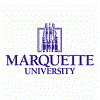
Founded in 1881, Marquette University serves 8,500 undergraduate and 3,300 graduate and professional students from nearly all states and more than 60 countries. The school offers 80 majors and 87 minors along with pre-professional programs in Dentistry, Law, and Medicine. Postgraduate programs include 77 doctoral and master's degree programs, and 25 graduate certificate programs.
The academic programs at Marquette are offered in 11 colleges and schools. The Marquette University Graduate School of Management offers an MBA that covers “all functional areas of business while placing a unique emphasis on business literacy, strategy and leadership,” says the school. The curriculum allows students to “customize the program to fit their needs while creating a more efficient path to graduation.”
Course highlights include Business Analytics, Corporate Advocacy, Design and Management of Database Systems, Enterprise Risk Management, FinTech: Foundation and Applications, Global Marketing Strategy, Human Capital Strategy, Leading People and Change, Leading Innovation and Creativity, NCAA: Exploring Current Issues, Negotiations, and Topics in Organizational Management.
Students will also complete a Strategic Management Capstone. This project-based class offers the opportunity to understand and comment on a firm's strategic management, including interviewing a President or CEO and “appraisal on strategy and perspectives on what has been learned.”
Depending on the student’s undergraduate background, the Marquette Online MBA requires 31.5-42 credit hours to graduate. There are no on-campus or in-person requirements, a GMAT/GRE waiver is available and work experience is encouraged but not required for domestic applicants. With three start dates annually, the Marquette Online MBA can be completed in as little as two years.

Founded in 1869, Southern Illinois University Carbondale (SIU Carbondale) is the state's second teachers college. With a dozen academic departments and an inaugural class of 143, the school is the flagship campus of the Southern Illinois University System.
SIU Carbondale offers more than 200 majors, minors, and specifications at the undergraduate level master's degrees in over 60 programs, a Graduate Certification in Gerontology, and doctoral degrees through 29 programs. Programs are offered in 11 colleges and schools. The College of Business and Analytics at SIU Carbondale offers an AACSB-accredited MBA program that can be completed entirely online in fewer than two years.
Known as the SIU oMBA, the program has a concentration in Analytics for Managers. This optional concentration provides access to and support by “top analytics experts through the Pontikes Center for Advanced Analytics and Artificial Intelligence,” says the school. Through the concentration, students will learn how to manage the process of converting large amounts of collected data into valuable and useful information.
Graduates of the SIU oMBA are prepared for leadership positions in just about every business sector: Engineering, Financial Services, Healthcare, Hospitality, Logistics, Manufacturing, Marketing, Retail, and more.

Founded in 1881 and named for Civil War General Francis Marion Drake, Drake University (Drake) serves 2,800 undergraduates and 1,800 graduate students from 45 states and more than 52 countries. Undergraduate students choose from more than 100 majors, minors, and concentrations; combine majors, or create their own majors. Graduate students choose from more than 20 masters, doctoral, and professional degrees.
Programs at Drake are offered across seven major academic units including the College of Arts and Sciences, School of Education, College of Business and Public Administration, John Dee Bright College, School of Journalism and Mass Communication, School of Law, and College of Pharmacy and Health Sciences.
The College of Business and Public Administration (CBPA) at Drake offers an MBA program that may be completed 100% online. The program offers Business Analytics and Healthcare emphasis areas or students may customize an emphasis by combining courses from Drake’s MBA, Master of Public Administration, and Master of Communication.
The MBA curriculum “focuses on a balance of strategic decision-making,” says the school, as well as “ethical leadership, and analytical reasoning that can be brought into any workplace immediately.” Course highlights include Business Analytics, Teams, and Projects, Corporate Governance & Ethics, Data Management and Visual Analytics, Information Technology and Business, Leadership & Human Capital Development, Leading with Data, and Statistical Modeling. Professional Development Seminars are also part of the program.
The 39 credit hour Drake Online MBA is AACSB accredited and it can be completed in as few as two years, attending part-time.
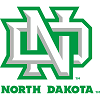
University of North Dakota (UND) was founded in 1883—six years before North Dakota was established. The school gave the state its name when the former Dakota territories separated into two distinct states. Serving approximately 13,615 students on a busy 521-acre campus, today, UND is North Dakota’s oldest and largest university.
More than 250 programs are offered in UND nine colleges and schools. The Nistler College of Business & Public Administration (UND Nistler CoBPA) offers a 33 to 34 credit hour MBA program that takes 1.5 to two years to complete. The online program does not require any campus visits. Instead, students attend via “live” Web classes held in the evenings, one evening per week, for three hours.
The UND Nistler CoBPA MBA offers five tracks including Business Analytics, Government & Business, International Business, Social Entrepreneurship, and the General Concentration. Students in the focused concentrations will complete additional coursework specific to the track. For example, the Social Entrepreneurship Track requires Creation & Management of Social Enterprises, Political Advocacy & Social Entrepreneurship, and Seminar in Social Entrepreneurship. And for the International Business Track, students obtain internationally focused coursework by studying abroad at the BI Norwegian Business School.
Students in the General Concentration will students choose courses from a variety of disciplines including marketing, economics, management, healthcare administration, and social entrepreneurship. In addition, the school says that students “will have the opportunity to choose cognate courses outside of the College of Business Administration for a more tailored program experience.” Some of the courses that students can choose in this concentration are Brand Management, Demographics, Forecasting, Health Policy, and Relationship Marketing.
Students may enter the AACSB-accredited UND Nistler CoBPA MBA program every fall (August), spring (January), or summer (May). Graduates of the program have gone on to top management positions at companies and organizations including Bank of America, Cargill, Coca-Cola, Delta, Target Corporation, and the FDIC.
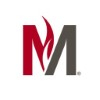
Minnesota State University, Moorhead (MSUM) opened in 1888 as Moorhead Normal School. The school’s first graduating class of eight students received their degrees in 1890. Today, MSUM serves more than 5,500 students and thousands of alumni. The school offers more than 100 undergraduate degrees, majors, minors and emphasis allowing students to earn baccalaureates, certificates, licensures, and professional and dual degrees.
MSUM’s Paseka School of Business maintains prestigious AACSB International accreditation for excellence in business education. The school offers an MBA Program that may be completed entirely online. Courses have optional live interactive sessions otherwise students may review the session recordings.
Courses include content covering Entrepreneurship, International Marketing, Investments, Quantitative Methods, and Project Management. Because the program is structured to provide students with an operational understanding of the functional areas of business, the tools to apply critical thinking skills to managerial decisions, and a framework for strategic thinking and planning that applies to all areas of business, undergraduate degrees may be in any field of study.
The Paseka Online MBA Program at MSUM has a 100% job placement rate.

